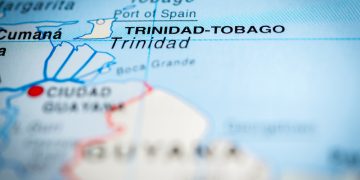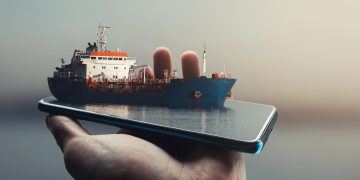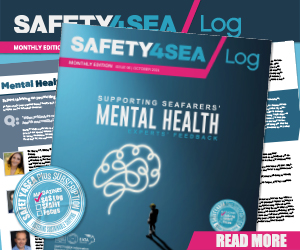The 96th Session (MSC 96) of the IMO’s Committee on Maritime Safety (MSC) IMO MSC was held from Wednesday 11 through Friday 20 May 2016 under the Chairmanship of Mr Brad Groves and his Vice-Chair, Mr Juan Cubisino.
A summary by participants from Intermanager distributed during MSC 69 as follows:
Considetarion and adoption of amendments to mandatory instruments.
Following a protracted discussion in Plenary, a Drafting Group was formed and the most pertinent of their recommendations to the Committee were responded to as follows:
- adopt the Requirements for maintenance, thorough examination, operational testing, overhaul and repair of lifeboats and rescue boats, launching appliances and
- release gear and the requisite MSC resolution
- adopt a new chapter 17 of the FSS Code, for early implementation and an amended chapter 8
- concur that ro-ro passenger ships that have had their escape routes evaluated by evacuation analysis, need not be re-evaluated
- adopt proposed amendments to chapter II-2 and III of the 1974 SOLAS Convention, also the 2011 ESP Code
- note the list of editorial modifications to the IMDG Code
- adopt the proposed amendments to the IDG Code
- approve amendments to the introduction of the 2008 IS Code regarding ships engaged in anchor handling operations and approve, in principle, amendments to part B of the Code
- approve amendments to the STCW Convention related to the Polar Code, with a view to adoption at MSC97
- include appropriate information in Port State control guidance as to when masters and chief mates may serve on board ships operating in Polar Waters without being required to hold a certificate in advanced training
- approve amendments to part A of the STCW Code, and in principle, part B
- adopt amendments to the 2009 MODU Code
- approve the MSC circular on Guidelines on consolidated IMO provisions for the safe carriage of dangerous goods in packaged form by sea
- approve the MSC circular amendments to the Inspection programmes for cargo transport units carrying dangerous goods and
- approve an MSC circular on ‘Amendments to the recommendations on helicopter landing areas on ro-ro passenger ships’
Measures to enhance maritime security
Following discussion in Plenary, WG3 was established and tasked to consider 2 main issues, that of guidance on national maritime security legislation, also maritime cybersecurity. Reviewing WG3’s report on its deliberations, the Committee:
- approved an MSC Circular on ‘Guidance for the Development of national security legislation’. Member Governments willing to use this Guidance for the development of their own legislation were encouraged to request technical assistance from IMO, if so required and
- approved draft high-level Guidelines on Maritime cyber risk management as Interim MSC Guidelines which will be processed by FAL41 to cover shore facilitation aspects after which a joint FAL/MSC circular will be finalised at MSC97.
Goal-Based new ship construction standards(GBS)
The Committee, recognising that the structure of submissions from 12 IACS member ROs, in particular the Common Structural Rules as contained in the Common Packages, decided to consider all of the audit reports together with Corrective Action Plans in order to reach a common decision equally applying to all 12. The outcome of the GBS verification audits was satisfactory and the information provided by the Submitters (12 IACS member ROs) demonstrated that their rules conform to the Tier I goals and Tier II functional requirements of the GBS standards. The verification audits will contribute to the further improvement of the ROs’ rules for bulk carriers and oil tankers thus enhancing the safety level of these ship types. A timetable and schedule of activities for the implementation of the GBS verification scheme proposed by WG2 was approved by the Committee and Member States / international organisations were invited to submit comments and proposals on the GBS verification audit scheme, taking into account possible issues to be considered by the GBS Working Group at MSC97.
Passenger ship safety
The Committee recalled that after the capsizing of the ship COSTA CONCORDIA, various measures were taken including updating of the long-term action plan. However, MSC93 decided to finalise discussion on potential work items and since no proposals were submitted, agreed to keep the annex to MSC 96/6 as the final version of the long-term plan on passenger ship safety, thus deleting this output from the IMO High-level Action Plan. CLIA spoke of two best industry practices on fire protection within the global cruise industry, namely water mist fire suppression systems and measures for covered mooring decks. INTERFERRY stated that after recent fire incidents on the ro-ro deck of ro-ro passenger ships, it prioritised seven best practices primarily of an operational character which has been shared with the wider ferry community.
Carriage of more than 12 industrial personnel on board vessels engaged on international voyages
This was probably the most debated item of the entire meeting, involving 2 extensive sessions in Plenary and a dedicated drafting group (WG1). IRELAND pinpointed the problem being as to who ‘industrial personnel’ are, added to which there is also a lack of definition for ‘industrial activities’ leaving any draft Recommendation open to a wide range of interpretations. In addition, many of these vessels will not be engaged on international voyages and therefore subject to regulations by the coastal State. The recommended way forward proposed by the Secretariat, to grant exemptions under SOLAS regulation 1 /4 and equivalent under regulation 1 /5, left many delegations feeling uneasy. However, the Committee endorsed the WGs recommendation to instruct SDC to use the outline draft Recommendations as a basis for further development. Noting the complex nature of the legal issue under consideration, it was agreed that this matter should be further considered at MSC97. Additionally, the Committee requested the Secretariat to provide further legal advice on the matter.
Points of practicular interest from the sub committees
- SSE3 did not achieve unanimous agreement on IACS UI SC270 relating to fire pumps in ships designed to carry five or more tiers of containers on or above the weather deck. However, it is IACS’ intention to submit the version of UI SC270 agreed by SSE2 to MSC97 for approval.III2’s recommendation that an IMO Model
- Course on the safety of passenger ships not covered by SOLAS be developed on existing IMODOCS draft documents was endorsed.
- The Committee noted the decisions by FAL40 related to the use of electronic certificates and its approval of FAL.5/Circ.39/Rev2 on the matter. Following this, the delegation of DENMARK made a statement regarding their decision to stop issuing paper version flag State certificates shortly. Accordingly, all ships flying the Danish flag will be issued with certificates in an electronic format, as and when such certificates expire and are renewed.
- The Committee endorsed CCC2’s view that all safety concerns with regard to ships using low-flashpoint oil fuels should be addressed in the context of the IGF Code only.
- HTW3 agreed that appropriate guidance relating to the provision of documentary evidence to Port State control officers and other third-party inspection regimes should be developed by IMO to provide clarity and instructed HTW4 accordingly.
- Following PPR3, the Committee approved the draft MSC-MEPC circular on ‘Example of a Certificate of Protection for products requiring oxygen-dependent inhibitors’ subject to concurrent approval by MEPC70.
- Following NCSR3, ‘Galileo’ was recognised as a component of the WWRNS whilst Iridium still needs to comply with a few outstanding requirements before recognition.
Piracy and armed robbery against ships
The Committee noted that:
- 4/Circ.232, containing the 2015 annual report on acts of piracy and armed robbery against ships had been published in April 2016
- The Industry cosponsors of BMP4 had announced a revised High Risk Area (HRA), effective from 1/12/2015
- The Regional Cooperation Agreement on Combating Piracy and Armed Robbery against Ships in Asia – Information Sharing Centre (Re CAAP-ISC) had released a new regional guide to counter piracy and armed robbery against ships in Asia
- The Djibouti Regional Training Centre building in Djibouti, intended to support regional maritime security and counter-piracy in the region, had formally been opened on 12 November 2015
- Very few Member States had provided information to IMO on national points of contact for communication of information on piracy and armed robbery and
- A formal consultation process to expand the use of the LRIT Distribution Facility for the automatic provision of flag State LRIT information to the Maritime Trade Information Sharing Centre Gulf of Guinea (MTISC-GoG) on a voluntary basis had been conducted in September / October 2015.
The positive results from the use of the LRIT Distribution Facility in the Gulf of Aden and the western Indian Ocean plus the increasing number of piracy attacks in the GoG, supported using the LRIT Distribution Facility in the GoG, allowing the voluntary provision of flag State LRIT information to MTISC-GoG. Accordingly, the Committee authorised expanding the use of LRIT to the GoG.
Finally, the Committee noted with appreciation, the information provided by the Marshall Islands detailing a progress report on the number of floating armouries in the HRA.
Unsafe mixed migration by sea
Tellingly, no documents were submitted on this agenda item despite the Informal Meeting to Review the Legal Framework for the Rescue of Mixed Migrants at sea held at IMO on 21 September 2015.Since then, a Symposium, held by WMU in Malmo on 26 / 27 April 2016 identified ten critical needs, which set out to:
- Maintain pressure on the UN to look again at safe refuges for migrants before they embark, also to convey asylum seekers and the most vulnerable to safety in proper craft
- Recognise the welfare of seafarers who may be traumatised by horrific rescue missions
- Resource better reception facilities, not leaving coastal States to cope alone
- Establish more practical and pragmatic asylum policies
- Stop being squeamish and politically correct about bad governance and corruption in countries driving their people away
- Realise the value of bilateral and interagency cooperation at an operational level
- Increase capacity building, technology transfer and helping the less capable with what is being learned at sea and ashore in the current crisis;
- Hold briefings regularly enabling more transparency with which to dispel rumours that can affect migrant reactions
- Encourage better liaison between Government agencies and shipping companies (e.g. Information Fusion Centre in Singapore) and
- Provide masters of ships with the maximum amount of support in their rescue missions, so that they know exactly what they are taking on
Formal safety assessment (FSA)
In addition to encouraging Member States to upload more specific casualty information onto GISIS, the FSA Expert Group commented that:
- the reporting of accidents / incidents should be revisited to enhance the quality and relevance of the data available in GISIS, for the purpose of carrying out FSA studies and
- a revised format for reporting casualties should be set up to ensure the transparency of information available in GISIS. Towards this end, the Secretariat was requested to create a separate folder onto IMODOCS, under ‘Meeting Documents’, for uploading the reports previously made by the FSA Experts Group and collecting new ones.
- Reduction of administrative burdens in IMO instruments
Having reviewed administrative requirements under the relevant committees and considered how to proceed with the outcome of the Ad Hoc Steering Group on Reducing Administrative Requirements (SG-RAR), the Committee:
- Encouraged Member States to use GISIS modules to fulfil relevant reporting requirements
- Urged Administrations to expedite implementation of electronic certificates
- Encouraged a review of the feasibility of using electronic documentation other than electronic certificates and assess how such use could be addressed
- Instructed the HTW Sub-Committee to continue working on development of a framework for a GISIS module relating to the STCW Convention and Code and
- Instructed NCSR4 to further consider perceived administrative burdens, in particular, under the output of ‘Revised Guidelines and criteria for ship reporting systems’.
Urgent matters emanating from CCC3 to MSC97.
Because of CCC3’s close proximity to MSC97, only urgent matters will be forwarded, deemed to be:
- Amendments to the IGF Code and development of Guidelines for low flashpoint fuels
- Safety requirements for carriage of liquefied hydrogen in bulk
- Mandatory requirements for classification and declaration of solid bulk cargoes as harmful to the marine environment
- Matters related to liquefaction of solid bulk cargoes and
- UIs on the provisions of IMO safety, security and environment-related Conventions
E-navigation – new output on harmonised maritime service portfolios (MSP)
Six Member States and seven NGOs, including InterManager, co-sponsored document MSC96/23/7, spear-headed by AUSTRALIA. It proposed a new output on e-navigation to define and harmonise the format and structure of MSPs and to provide guidance on the appropriate communication channels used for the electronic exchange of information between shore and ship, including any necessary co-ordination mechanisms and transitional arrangements that may be required. The Committee agreed to include an output in the post-biennial agenda entitled ‘Develop guidance on definition and harmonisation of the format and structure of MSPs’, over two sessions, assigning the NCSR Sub-Committee as the coordinating organ.
Verification of the gross mass of packed containers (VGM).
The Committee noted with appreciation the set of frequently asked questions and answers (FAQs) regarding the verification of the gross mass of packed containers, published by WSC and ICHCA in collaboration with shippers and insurers to assist implementation of this new requirement. Noting that the SOLAS requirements for VGM enters into force on 1 July 2016, and taking cognisance of potential trans-shipment problems with containers loaded before 1 July 2016 but where a VGM would be required at the port of trans-shipment, the Committee agreed a way forward. This would be to urge Administrations and port State control authorities to adopt a practical and pragmatic approach when transitioning to the new SOLAS regulation VI/2 requirement and exercising control procedures for a period of three months after 1 July 2016 thus permitting trans-shipped containers to reach their final port of discharge without a VGM. Thus, the Secretariat prepared a relevant draft MSC circular advising Administrations and port State control Authorities regarding the proposed ‘period of grace’.
EU operational guidelines on places of refuge
The Committee noted with appreciation the information in document MSC 96/24/5 relating to EU development of operational guidelines for the accommodation of ships in need of assistance and requesting a place of refuge from the Competent Authorities within the European Union. These were tested in 2015 and put into effect in January 2016.
Expansion of Panama Canal
The delegation of PANAMA announced that a third set of locks will be opened on 26 June 2016.
Source: InterManager


































































